














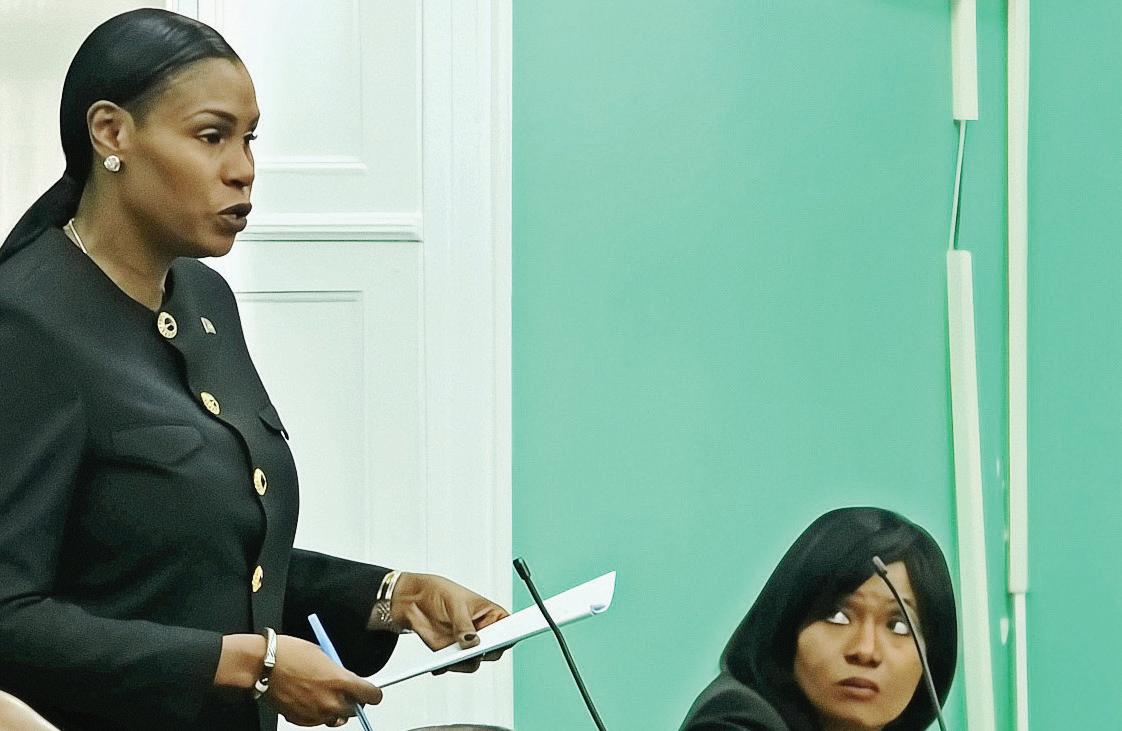
By LYNAIRE MUNNINGS Tribune Staff Reporter lmunnings@tribunemedia.net
LABOUR Minister Pia Glover-Rolle revealed yesterday that the government had rehired 491 retired public servants under the
By PAVEL BAILEY Tribune Staff Reporter
pbailey@tribunemedia.net
A POLICE officer testified that his superior told him to avoid a 60-year-old man who was later found dead in custody at Central Police Station in 2023 after the officer reported that the man appeared unwell and was calling out in distress. The statement came
during an inquest before Coroner Kara TurnquestDeveaux, examining the circumstances of Hartman Dawkins’ sudden death on January 22, 2023. Officers reportedly discovered him unresponsive in his cell during routine morning checks.
An officer had previously testified that there was a

Davis administration, 98 percent of whom receive a pension and a salary.
The Free National Movement called her justification –– that ministries lack succession planning –– “laughable.” Mrs Glover-Rolle noted
that in October 2021, Cabinet reversed the Minnis administration’s decree that rehired retirees not receive both a pension and a salary. Critics have long lamented how often the
By LEANDRA ROLLE Tribune Chief Reporter lrolle@tribunemedia.net
CHINESE Ambassador Yan Jiarong dismissed US concerns about China’s engagement in The Bahamas, insisting the relationship is based on economic cooperation without hidden conditions or malicious intent. Her comments came
after US officials urged The Bahamas to limit Chinese influence, warning that some foreign investments come with “nefarious strings attached.”
China’s top diplomat in The Bahamas pushed back against negative characterisations of her country’s presence, emphasising that both nations have the right

Opp OsitiOn argues refOrms ‘dOn’t gO far enOugh’ as gOvt passes anti-cOrruptiOn bills
By RASHAD ROLLE Tribune News Editor rrolle@tribunemedia.net
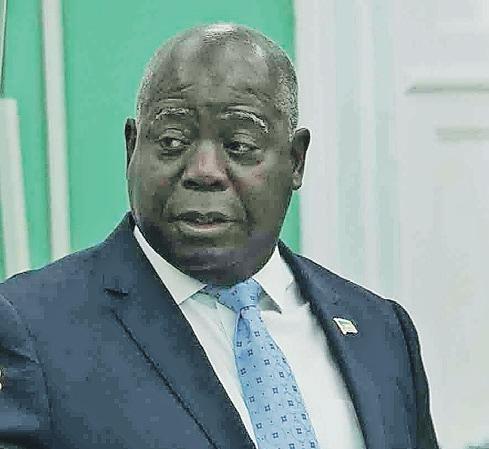
ELECTED officials passed two bills yesterday that Prime Minister Philip “Brave” Davis described as the most aggressive and far-reaching accountability and anticorruption reforms in the country’s history. His administration accelerated the bills after two high-profile police scandals
shook the public’s trust in law enforcement last year: a voice note scandal purporting to capture a quid pro quo arrangement involving a senior police officer and a US federal indictment alleging that some officers helped facilitate cocaine smuggling into the United States. While the Davis administration emphasised the
spaceX impact assessment tO land sOOn, says gOvt

By EARYEL BOWLEG Tribune Staff Reporter ebowleg@tribunemedia.net
THE government will publicly release the environmental study related to its agreement with SpaceX to land rocket boosters in The Bahamas, according to Latrae Rahming, director of communications at the Office of the Prime Minister.

from page one
Dr Rhianna Neely-Murphy, director of the Department of Environmental Planning and Protection, later told The Tribune that the document is expected to be posted once several administrative issues are resolved, possibly within a day. On Tuesday, The Bahamas became the first country outside the United States to host a successful landing of a SpaceX Falcon 9 rocket booster, which
touched down on a drone ship in Exuma Sound.
However, former Environment Minister Romauld Ferreira criticised the government’s failure to make an environmental impact assessment (EIA) publicly available before the landings. He said this lack of transparency reflected a broader pattern of secrecy and weak accountability on environmental issues.
Citing the Environmental Planning and Protection Act
of 2019, Mr Ferreira noted that the law requires all EIAs to be publicly accessible. He argued that once the assessment was completed, public consultations should have been held in Exuma, the area most affected. The documents, he said, should have been made available to residents in both Exuma and New Providence and published online for nationwide access. He questioned the long-term environmental impact of allowing rocket debris to fall into Bahamian waters.
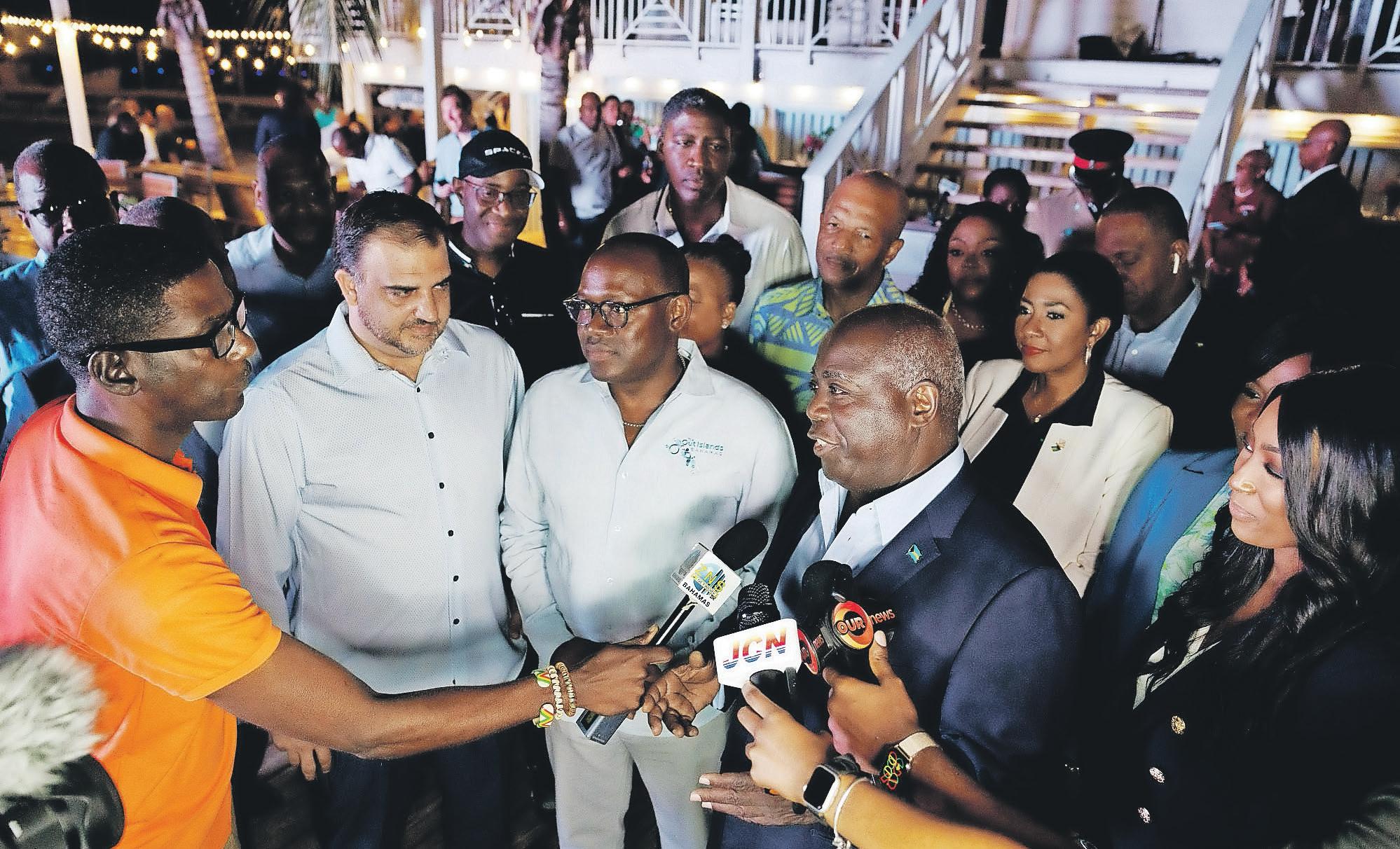




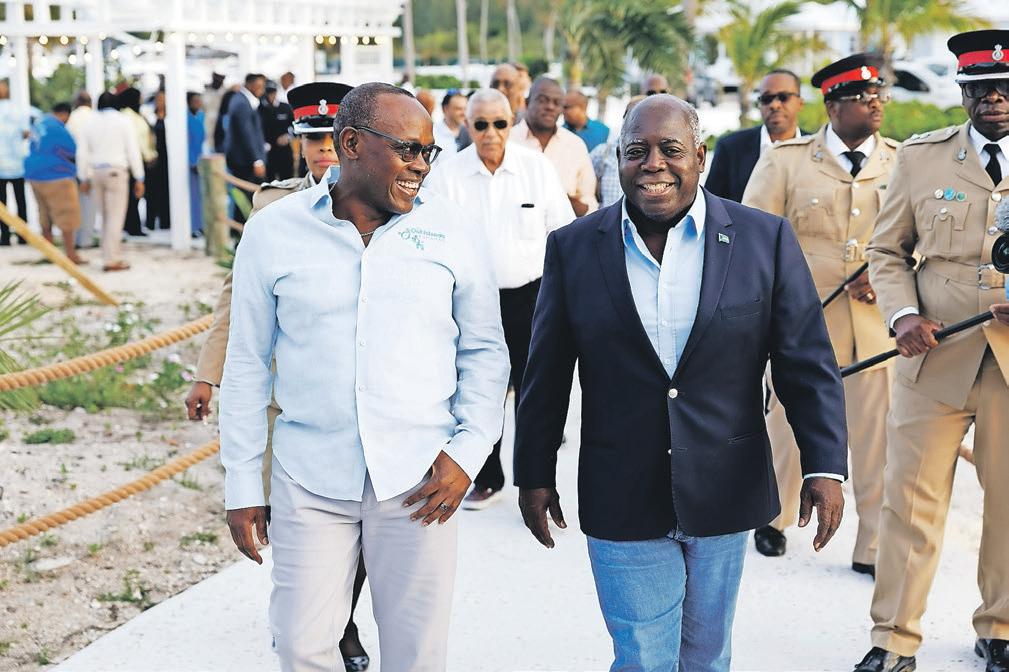

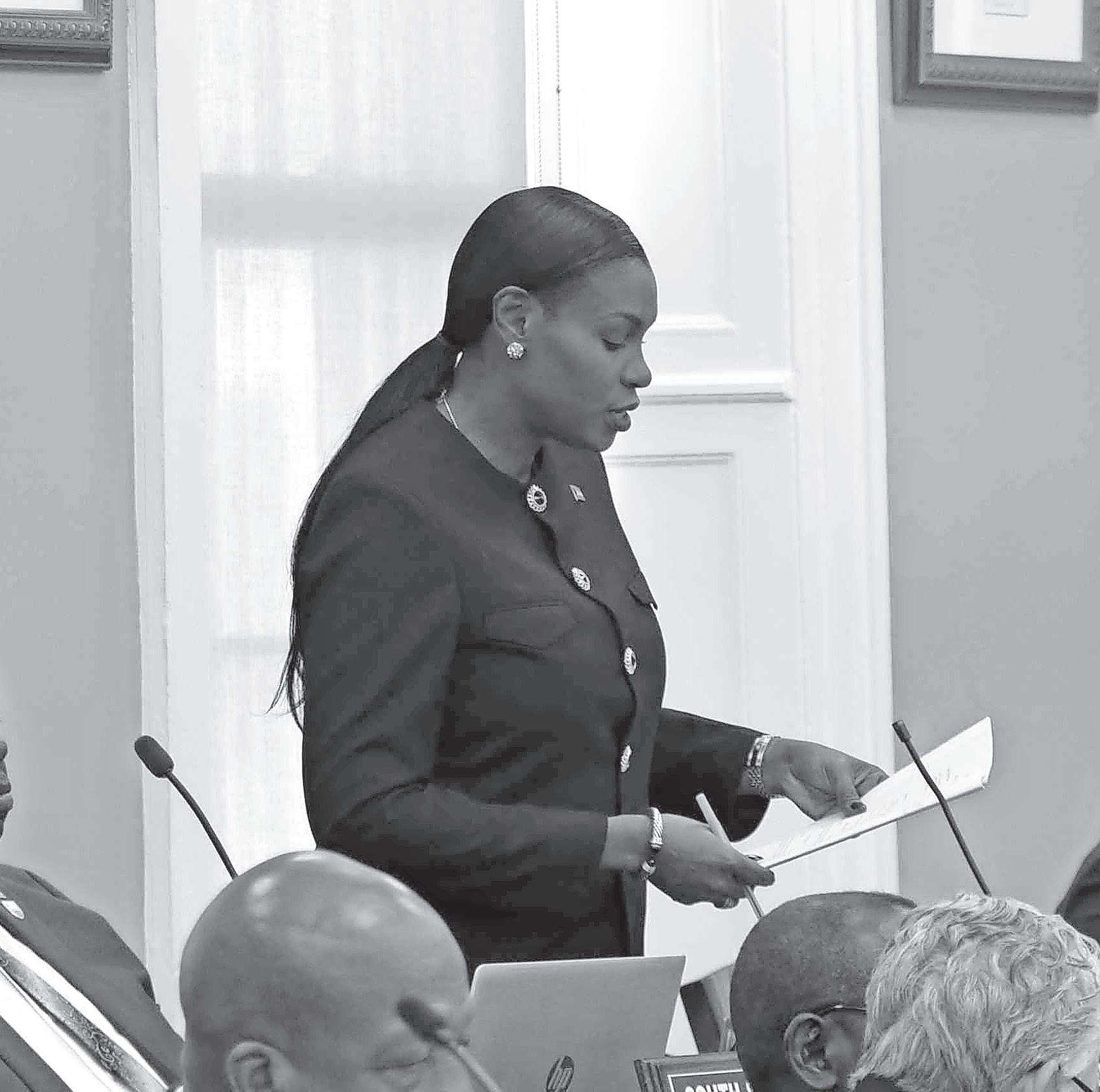
broad scope of a new agency under the Independent Commission of Investigations Bill, which would investigate serious complaints involving law enforcement and certain public officials, opposition members argued that the reforms do not go far enough.
They noted that the Independent Commission of Investigations would not be empowered to enforce a code of conduct or address public officials who fail to disclose their assets and liabilities promptly and accurately.
They questioned whether the commission, with its sweeping mandate, could effectively carry out its duties under the proposed structure without facing significant backlogs.
They said the body’s independence is undermined by the prime minister’s unfettered authority to appoint its commissioners.
Citing the Davis administration’s history of failing to properly fund other good governance initiatives, such as the Freedom of Information Unit, opposition members also expressed doubts about when the new body would become fully operational.
Progressive Liberal Party legislators, in turn, questioned the opposition’s commitment to accountability, pointing out that the Minnis administration had tabled at least one similar bill –– the Integrity Commission
Bill, 2017 –– but failed to debate or pass it.
The Independent Commission of Investigations would investigate serious complaints involving security forces, and public officials required to comply with the Public Disclosures Act.
The commission could summon witnesses, compelling the production of documents, and conduct hearings. It would submit reports to Parliament and refer cases to the Director of Public Prosecutions (DPP) when criminal charges are warranted. The DPP will then determine whether to pursue charges and inform Parliament and relevant agencies accordingly. The commission would comprise independent investigators, with members having the legal authority to conduct inquiries and issue recommendations. After consultation with the opposition leader, the prime minister would choose commissioners, and they will have immunity from legal action for duties performed under the act. The law also includes provisions to protect witnesses and individuals assisting the commission.
Meanwhile, the Protected Disclosures Bill 2025 seeks to protect whistleblowers from retaliation. It outlines the process for making disclosures, specifies the roles of a designated authority responsible for overseeing investigations, and establishes protections for people who report wrongdoing in good faith. The bill prohibits
employers from retaliating against employees who make protected disclosures, offering them protection against dismissal, demotion, or other unfair treatment. It also includes severe penalties for obstructing the reporting process, with fines and imprisonment for those found guilty of retaliation or misconduct.
The designated authority is granted powers to investigate allegations, hold hearings, and collaborate with law enforcement if necessary, ensuring transparency and accountability. The bill also requires the authority to publish annual reports and submit them to Parliament for public scrutiny.
During yesterday’s debate, Mr Davis noted that last year, “very serious criminal allegations were made against multiple members of our uniformed forces,” people who are supposed to protect the public.
He said “no country can lift people out of poverty or build communities in which people thrive” if citizens don’t trust those who protect them.
“How,” he added, “can we trust a system when those accused of wrongdoing are the only ones with the power to investigate that wrongdoing?”
“We aren’t here to protect or prolong the status quo.”
Nonetheless, East Grand Bahama MP Kwasi Thompson contrasted the Davis administration’s approach to what Jamaica has done, noting that Jamaica has an Independent Commission of

government rehires retirees, but the rare revelation of how many have been rehired in the last three years shocked many yesterday.
Mrs Glover-Rolle disclosed the figures during a rare question and answer period in the House of Assembly, responding to Free National Movement leader Michael Pintard. She said 480 of the retired public officers receive their pension and salary.
The government’s website still says that rehired officers “are usually required to forgo their pension during the period of re-engagement,” despite the Davis administration’s policy change.
Mrs Glover-Rolle said after taking office in September 2021, she realised there were no clear succession plans in place because of poor human resource management over the years, which created a “hollow middle” caused by a lack of promotions and training.
“A human resource
Investigations that applies to security forces and an Integrity Commission that addresses anti-corruption, public disclosures and a code of conduct for public officials.
“What we have here today is a watered-down version of both of those combined in one,” he said.
Earlier, Mr Davis said creating two separate bodies would have been inefficient “in a small nation like ours.”
“This is not a diluted solution,” he said. “This is a stronger, more effective one.”
For his part, FNM leader Michael Pintard said the bills reflect the “inordinate amount of influence” the prime minister has to make recommendations to the Governor General for appointments to various positions, insisting that leaders “can stack the deck” for political advantage.
Former Prime Minister Dr Hubert Minnis raised concerns about the broad scope of the commission, questioning whether the proposed structure is large enough
structure has to have succession planning, it has to have clearly identified understudies, there has to be the pouring in of institutional knowledge from the persons that attrition out to the persons that remain in the system,” she said.
“That has not happened in our government agencies across the service and that is something that we have been working on in the past three years.”
She said re-engaged retirees serve as consultants to help with public service reforms by passing on their experience and expertise, adding that two ministries have already submitted succession plans.
She expressed optimism that, over time, the government would no longer need to rehire retirees.
She expressed hope that as the government’s plan unfolds, there will eventually be no need to rehire retirees in the public service. She acknowledged that unions have raised concerns about the issue and emphasised the importance of a well-managed human
to handle the volume of complaints it is expected to oversee. He noted that the commission will have jurisdiction over multiple security forces and a wide range of public officials, which could lead to significant delays in investigations due to the sheer number of cases. With only three commissioners proposed, he warned that the backlog already seen in the criminal justice system could be replicated within this new body.
He questioned how the commission would interact with existing complaint mechanisms within law enforcement and government agencies. The legislation suggests that once the commission is established, it will take over all major investigations, removing the ability of agencies to conduct internal inquiries.
Dr Minnis argued that this shift could overwhelm the commission and slow down the resolution of cases.
He also pointed out that the bill does not override the constitutional authority of the Commissioner of
resources system that prioritises training. While the goal is to eliminate the practice, she said that a small number of retired public servants have been rehired to maintain continuity and ensure proper succession planning within government ministries. Nonetheless, Free National Movement leader Michael Pintard said the administration’s actions mean “hundreds of longsuffering civil servants and young, qualified Bahamians” have been “pushed even further down the line, watching job opportunities go to the same people who already had their turn.”
“We have even bigger questions: How much is the PLP’s rehiring spree costing the Bahamian people? Who are the hundreds of retirees that the government believes we simply cannot do without — what essential functions they are carrying out? Will the government be prepared to publish the full list of these individuals along with the terms of their contracts?”
Police, meaning the police will still have to investigate crimes involving their officers, potentially leading to conflicts in jurisdiction.
He also emphasised the lack of transparency in the bill’s provisions regarding public reporting. He took issue with a clause that prevents press releases from disclosing whether the commission recommended criminal charges to the Director of Public Prosecutions. He said the public has a right to know the full outcome of investigations and called for an amendment to ensure this information is made public.
Despite the opposition’s criticism, PLP MPs emphasised that the FNM missed opportunities to change the status quo. Central and South Eleuthera MP noted that an Integrity Commission Bill was among the first the Minnis administration tabled.
“They didn’t have the guts, the testicular fortitude to even get it to this point,” he said. “It ain’ what they say, it’s what they do.”

said the deceased appeared to be walking normally at that time.
six-hour gap in Dawkins’ detention record between his last wellness check and the discovery of his body, calling such a lapse “highly unusual.”
Before his testimony, jurors were taken to the station, where they were shown how Dawkins’ body was found, lying face down in a cell.
Police Constable
Roc’Juorn Gardiner testified that he arrived at the station at 11.50pm on January 21, 2023, for his midnight-to-8am shift.
He said the supervising officer that night, Corporal Duncombe, showed up an hour late at 1am. Until then, another corporal was in charge and remained at the station until relieved.
CPL Gardiner also recalled seeing a constable when he arrived. However, he could not remember which officer was stationed at the cell block.
During his shift, he recalled Constable Kenneth Johnson requesting bleach to clean up a cell where a suspect had defecated. He estimated that there were at least ten prisoners in custody that night.
Sometime after midnight, CPL Gardiner said he saw Dawkins holding onto a wall and rocking back and forth. When he asked how he was doing, Dawkins replied that he was fine. Dawkins then requested to use the bathroom, and after being escorted by an officer, he was given toilet paper and water. CPL Gardiner
Around 2am, he said Dawkins sat upright in his cell, repeatedly shouting, “Oh Lord, oh Lord.” Concerned about his condition, CPL Gardiner informed CPL Duncombe, who dismissed his concerns, telling him Dawkins was sick and to stay away from him. Gardiner said he was also told not to worry about the detainee.
CPL Gardiner said he later responded to a disturbance at Climax Lounge downtown before taking a break from 3am to 5am. When he returned to the station, he did not see Dawkins again until breakfast at 7am, when he was found unresponsive. He said an officer checked Dawkins for vitals before informing Sergeant Gary St Fleur, who also conducted a check. CPL Gardiner’s shift ended just as emergency medical services were called.
When the jury asked why his account of Dawkins’ condition at 2am was not recorded in the detention log, CPL Gardiner responded that he was new to the station, having left police college just two months prior. He said his supervising officer was responsible for updating the record.
He confirmed to Coroner Deveaux that he did not receive a proper briefing when he arrived for his shift. He also claimed that the corporal scheduled to oversee the station that
night had called in sick.
CPL Gardiner said that, at most, only four officers were at the station at any given time that night.
When questioned about the lack of an official record of his break, he said it should have been logged in the station diary.
He admitted that he did not perform CPR on Dawkins, claiming he feared the deceased might have AIDS and could spit on him. He also alleged that Dawkins had been trying to drink water off the floor.
CPL Gardiner said that while Constable Enrique Bain checked on prisoners that night, CPL Duncombe never did.
During cross-examination by evidence marshal Angelo Whitfield, CPL Gardiner read from the detention record, which said at 1am that Dawkins appeared well and at 1.28am that he had requested to use the bathroom.
Coroner Deveaux noted inconsistencies in CPL Gardiner’s testimony, pointing out that while the detention record indicated he checked Dawkins hourly, he had testified that he did not check on him during his break.
She questioned whether officers simply filled out forms rather than conducting proper checks.
Constable Kenneth Johnson, who also worked the midnight-to-8am shift that night, testified that CPL Duncombe arrived late.
He, too, could not recall the exact number of detainees but estimated there

were more than ten.
PC Johnson said that around 11.30pm, while conducting cell checks, Dawkins told him he had been vomiting. However, he saw no vomit in the cell. He said he reported this to CPL Hepburn.
PC Johnson could not recall whether he asked Dawkins if he had a medical condition or was on medication.
He admitted to checking the cells only twice while Dawkins was alive — once while bringing in another suspect.
He said the next time he saw Dawkins was in the morning when he was unresponsive on the floor.
Referring to the detention record, he noted that
his only entries regarding Dawkins were at 11.27pm and 7.49am — after he had died. He said he received no directives from supervising officers that night. He also admitted that after finding Dawkins unresponsive, he waited for instructions before calling dispatch. In retrospect, he said, after two years on the job, he would have called for help immediately and ensured it was recorded on camera. He said he was on break from 3.30am to 5.30am, around the same time as PC Gardiner.
He claimed no supervising officer gave him instructions upon arrival. When questioned about his activities during his shift,
PC Johnson said he was on foot patrol from 1.30am to 3.30am before taking his break. He also claimed to have checked the cells at some point and that CPL Gardiner had been with him on patrol. Mr Whitfield questioned how CPL Gardiner could have reported Dawkins at 2am if he was on foot patrol with Johnson. PC Johnson said he could not explain the discrepancy. He confirmed to the coroner that at police college, officers were trained to check on detainees hourly. He said only half the scheduled shift showed up that night. In addition to the corporal calling in sick, he said another high-ranking officer was also absent.
By DENISE MAYCOCK Tribune Staff Reporter dmaycock@tribunemedia.net
A PROMINENT real estate professional who was reported missing has been found shot dead in a secluded area of East Grand Bahama in what police say is an apparent suicide.
Nikolai Sarles’ body was found Tuesday evening off Grand Bahama Highway. A firearm and ammunition were also found nearby.
The tragic incident has devastated his family, colleagues and associates in the Bahamian real estate industry.
Sarles, 36, was the son of prominent real estate businessman James Sarles and Marina Gottlieb-Sarles of Grand Bahama. He was a real estate broker at his father’s firm, James Sarles Realty.
He leaves behind a wife –– a doctor, and an assistant professor at a medical school in Freeport. The couple recently got married and have a one-year-old son.
Police said officers went to a bushy area off Grand Bahama Highway around 7.40pm on Tuesday, where they found a vehicle and, a short distance away, an unresponsive male with a gunshot wound.

“I can only imagine how difficult this must be for Jamie, Marina, Bri, Liam, and all who knew and loved him, as well as the entire real estate community on Grand Bahama,” she said.
Donna Laing-Jones, of Keys Bahamas Realty, expressed shock, saying: “I was heartbroken to hear about the passing of Nikolai Sarles, whom I worked very closely with.”
Ms Jones described Nikolai as a young, vibrant man full of potential. She said he had been preparing his son to take over the family business.
Police seized a quantity of ammunition from the victim and his vehicle. A doctor pronounced him dead at the scene. The victim had been reported missing since 2pm on Tuesday. Sarles was a successful real estate broker who closed major property deals in Grand Bahama and elsewhere.
Ms Jones said she had tried to contact Nikolai and sent him a message on Saturday but learned he was on vacation.
This is not the first time such a tragedy has struck the Sarles-Gottlieb family. Nikolai’s uncle, Cay Gottlieb — a well-known Bahamian attorney, songwriter, and founder of Cool 96 Radio — died similarly in 1997. He was 51.
POLICE in Bimini are investigating the drowning of a 70-year-old woman who died while swimming at Paradise Beach yesterday—the island’s third drowning in just a week. According to reports, a family member noticed the
woman motionless in the water. She was pulled to shore, and CPR was administered, but efforts to revive her failed. Her death follows two other recent tragedies. Over the weekend, a 46-year-old man drowned after his jet
ski overturned, leaving him struggling to stay afloat.
Earlier last week, an 85-year-old snorkeller became unresponsive in the water and later died.
Police said investigations into these incidents are continuing.

to determine their own diplomatic and economic partnerships.
“We don’t attach any strings and with no precondition, so I don’t see where is the ‘malignness,’” she said in an exclusive interview with The Tribune, adding that China’s collaboration with The Bahamas has been beneficial.
Last month, US Chargé d’Affaires Kimberly Furnish cautioned that some countries use “investment strategies that do not align with international best practices.”
Speaking at the Grand Bahama Business Outlook last week, she argued that China promises much but delivers little, urging The Bahamas to strengthen ties with regional partners for mutual economic growth.
Meanwhile, US lawmakers have called on the
State Department to send a high-level delegation to the upcoming CARICOM Heads of Government Meeting to counter what they described as “coercion” from China. The Davis administration has distanced itself from the geopolitical dispute, with Foreign Affairs Minister Fred Mitchell saying there is no evidence The Bahamas is being used by China to undermine the US.
“China is a doer,” Ms Jiarong said. “The facts speak louder than words.” She highlighted China’s contributions to The Bahamas, pointing to several infrastructure projects, disaster relief efforts, community support programmes, and educational scholarships.
Among the notable projects she cited was the Thomas A Robinson National Stadium, a gift
to The Bahamas. She also mentioned disaster relief funding, assistive devices for people with disabilities, and various community initiatives in Nassau.
Acknowledging The Bahamas’ close proximity to the US, Ms Jiarong noted that many Caribbean nations welcome increased investment and that China respects each country’s right to pursue its own development path.
She rejected the notion that countries must choose sides, calling “zero-sum thinking” and a “Cold War mentality” outdated and harmful.
“Coercion and containment strategy does not work,” she said. “In an era marked by geopolitical volatility and rapid technological change, global collaboration is indispensable.”
She also defended Chinese technology
enterprises, particularly in 5G solutions, dismissing long-standing US concerns over cybersecurity as unfounded.
She suggested that many expect the US to take a more open and confident approach toward partnerships between China, The Bahamas, and the wider Caribbean and Latin America.
Ms Jiarong also gave an assurance that geopolitical tensions would not impact China’s initiatives for The Bahamas, including its plans to fund a new hospital through a concessional loan pending final approval.
She emphasised that China prioritises The Bahamas’ needs and strengthens the friendship between the two nations.
“It will not be affected, at least China’s determination will not be affected by a third party,” she said.

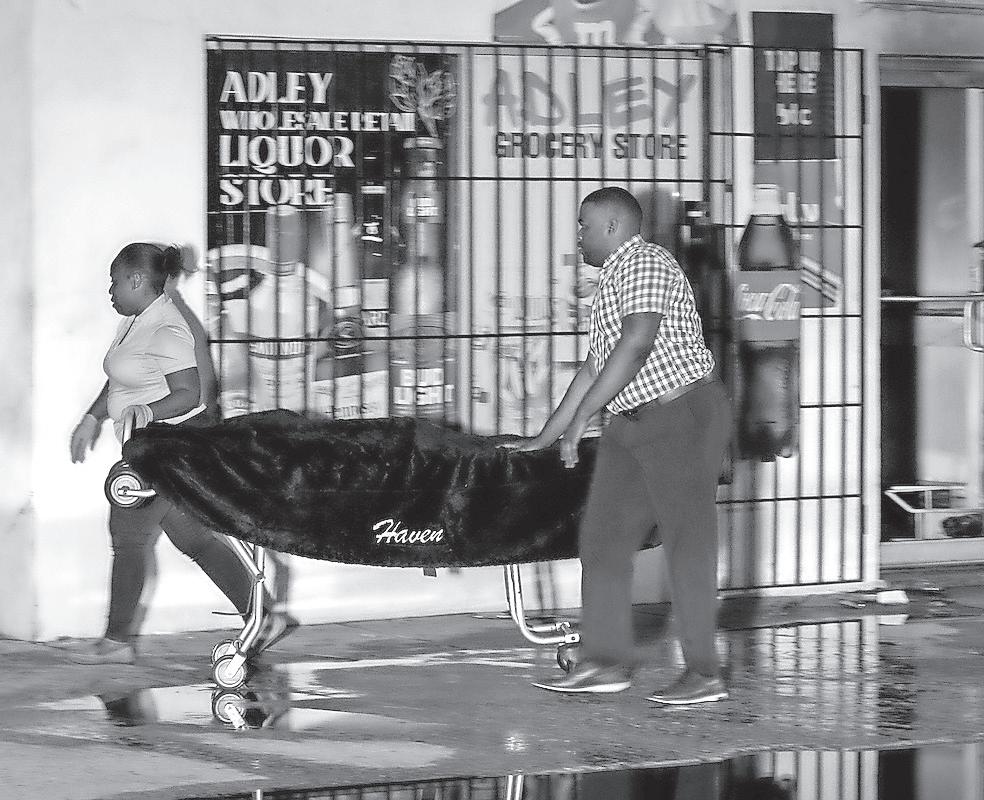
By EARYEL BOWLEG Tribune Staff Reporter
ebowleg@tribunemedia.net
POLICE have reclassified the death of a man found in a burned building last week as a homicide, shifting the case from a general death investigation to a criminal probe. The victim, a Haitian grocery store worker, was discovered in the charred remains of a building on Wilson Road, off Wulff Road.
Commissioner of Police Shanta Knowles told
reporters yesterday that while police now consider the case a homicide, it has not yet been classified as a murder. Authorities are awaiting the pathologist’s report to determine the exact cause of death.
Police also updated their classifications for two other recent deaths.
On February 12, officers responded to reports of an unresponsive man with injuries on Deveaux Street, off East Street. He was taken to the hospital, where he later died. Initially treated as a suspicious
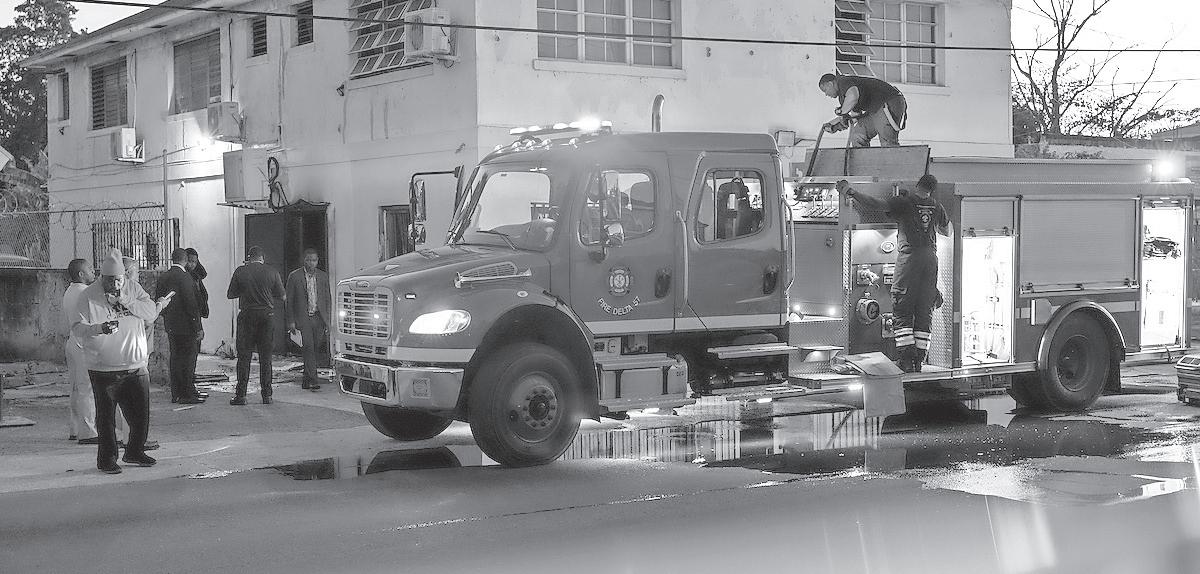
death, an autopsy determined his injuries were not fatal. Instead, he died due to irregular heartbeat rates, leading police to reclassify the case as a sudden death. Similarly, on February 8, a 65-year-old man was found lifeless with injuries at a home on Willet Street. The case was initially considered suspicious, but an autopsy revealed he had a pre-existing medical condition and died due to constricted breathing. As a result, police have also classified this case as a sudden death.
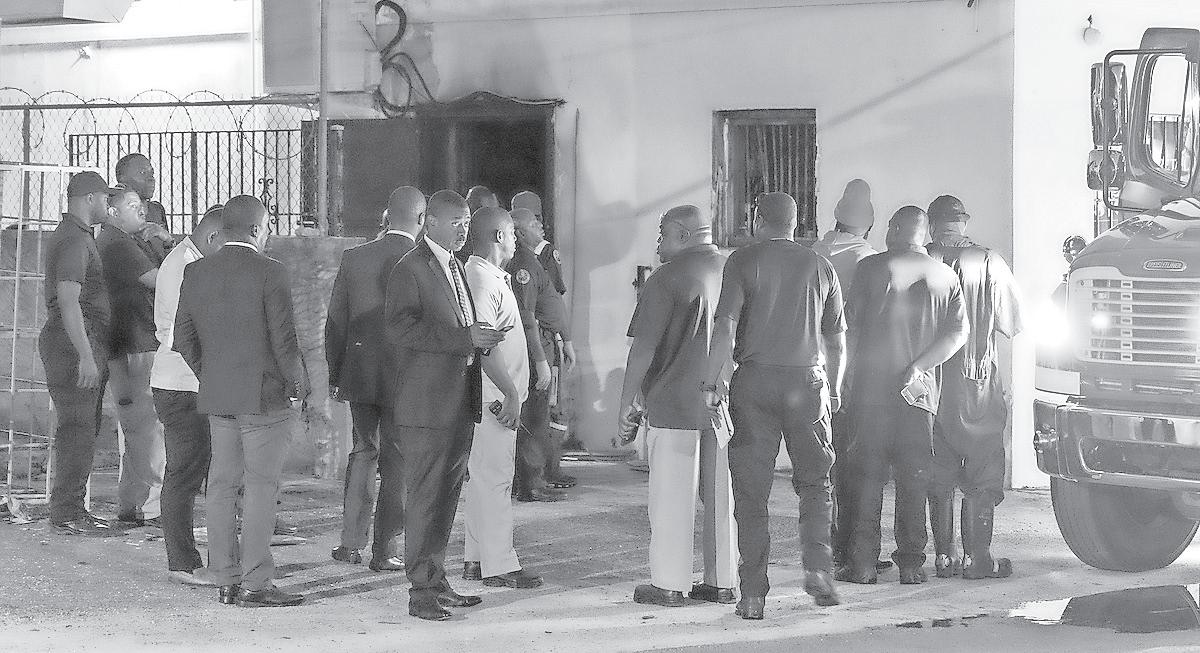


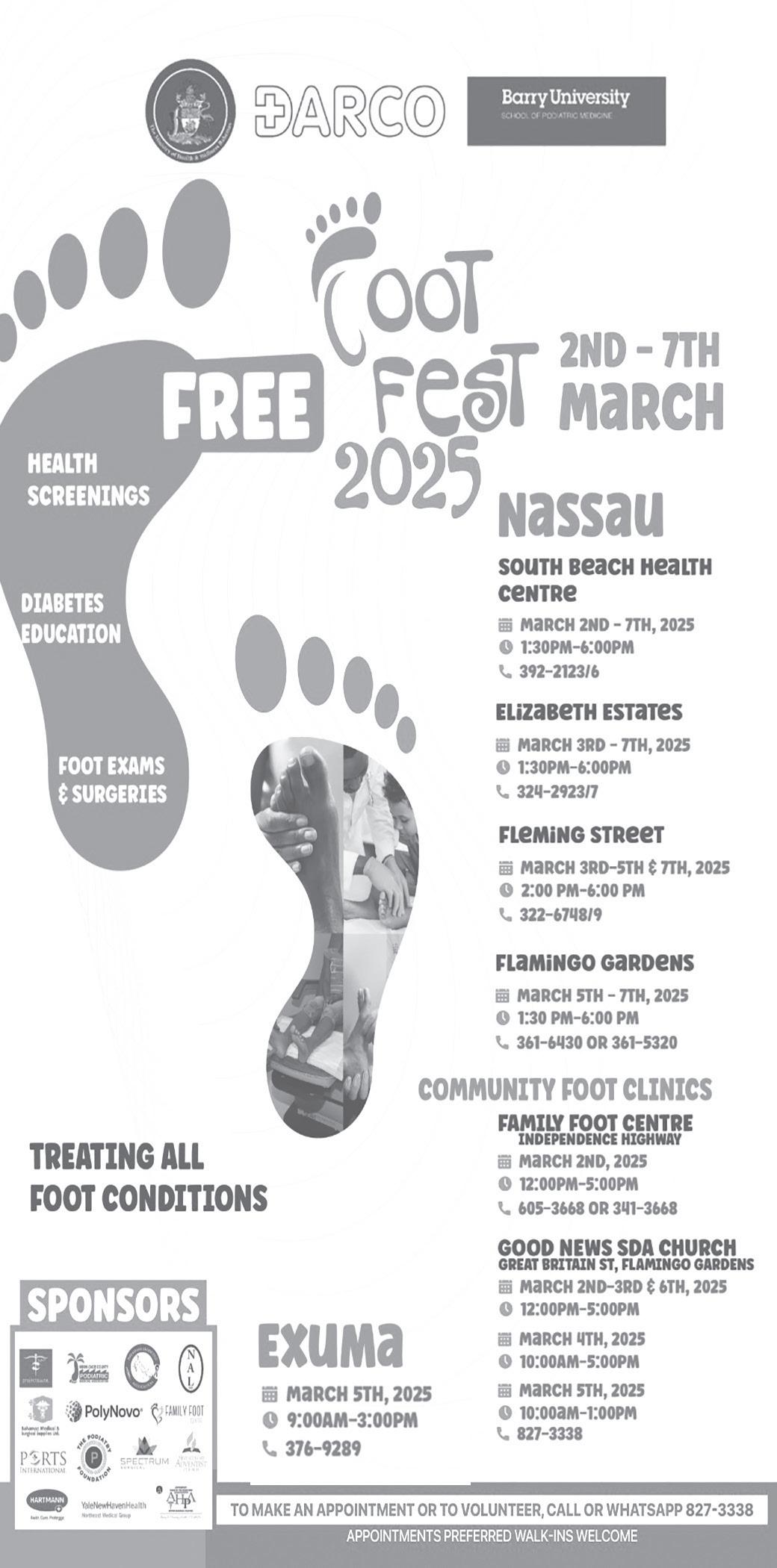
NULLIUS ADDICTUS JURARE IN VERBA MAGISTRI
“Being Bound to Swear to The Dogmas of No Master”
Publisher/Editor 1903-1914
LEON E. H. DUPUCH
SIR ETIENNE DUPUCH, Kt., O.B.E., K.M., K.C.S.G., (Hon.) LL.D., D.Litt .
Publisher/Editor 1919-1972
Contributing Editor 1972-1991
RT HON EILEEN DUPUCH CARRON, C.M.G., M.S., B.A., LL.B.
Publisher/Editor 1972-
Published daily Monday to Friday
Shirley & Deveaux Streets, Nassau, Bahamas N3207
TELEPHONES
News & General Information
(242) 502-2350
Advertising Manager (242) 502-2394
Circulation Department (242) 502-2386
Nassau fax (242) 328-2398
Freeport, Grand Bahama (242)-352-6608
Freeport fax (242) 352-9348
WEBSITE, TWITTER & FACEBOOK

www.tribune242.com @tribune242

ReMeMBeR all that election talk of a New Day government? Some of that New Day has been looking a little old of late.
First there was the announcement that former Prime Minister Perry Christie would be taking up a role as the head of Urban Renewal. At the age of 81, his was the fresh face to guide and direct the Urban Renewal Authority. The role is unpaid, we are assured, while the current Prime Minister, Philip “Brave” Davis, picked him out for the job because “the programme was birthed by him”. Mr Christie also has a role with the CARICOM eminent Persons Group liaising with Haiti on a way forward there, which seems plenty to keep him occupied trying to stop a civil war without loading Urban Renewal on top – but here he is, rather than a younger pair of hands.
Then yesterday Pia Glover-Rolle, Minister of Labour, revealed that just under 500 retired civil servants are back on the job – so they get both their pension and a salary for being back at work.
A total of 491 retirees are back in the civil service – with 480 of them receiving both pension and salary.
Mrs Glover-Rolle’s statement to the House noted that many ministries had no succession plans in place, supposedly because of poor management over the years.
However, The Tribune has noted cases in the past where retired figures have been brought much to the annoyance of unions who have made their case for why there should have been promotions from within instead.
Mrs Glover-Rolle said she hoped that over time the government would no longer need to rehire retirees – though one wonders that if the succession planning has not been there already how it is going to develop if those roles are still being filled by older heads rather than giving younger staff the chance.
Succession plans also depend on staff retention – and if you keep seeing the roles you aspire to being filled by returning workers, you might just find yourself looking for opportunities elsewhere.
We should also note that we are in early election season – and although it looked fake right from the off, and voices were quick to assure that it was so, a list of supposed PLP candidates for the next election circulated recently. The names included featured some old and familiar names – who might well have been left on the shelf after previous electoral disappointment. Fake it might be, but it will be interesting to see how many old names feature when the next New Day election comes around. So everything old is new again? Or is it the same as it ever was?
EDITOR, The Tribune.
US making charges against the Peoples’ Republican when respectfully persistent US Foreign policy to the Caribbean has solely and only around drug smuggling to meetsatisfy the US appetite - Migrant smuggling to the US and Gun smuggling from US manufactured facilities…with such high level of injury to us.
The US under President Reagan initiated CBI - Caribbean Basin Initiative still alive probably til 20230 was a fantastic concept but the US put no
meat or encouragement behind it.
We saw 1993-94 Ingraham Government recognise One China... along came Hutchinson-Whampoa and the development of the GB Container Port...it is said pre commitment of H-W edward St George searched the world including US-based Port Developers...but none came forward. The British Colonial property and undeveloped site west was available for years - no takers along came China State who acquired and developed


EDITOR, The Tribune
IN the February 11 edition of The Nassau Guardian, Andrew Allen wrote under the heading “elections are always the PLP’s to win or lose.”
the parking Garage - The Pointe complex. Again a positive China investment Baha Mar…originally the proposer Sarkis had the massive Harrah’s as his partner we al know Harrah’s left- the Chinese step in...eXIM China finances Baha Mar employing 1‘000’s.
Where has there been comparative investment by US based enterprises over the past 20-25 years to compare?
Facts speak . JACOB HUDSON Nassau, February 17, 2025.

As the heading implies, general election results are solely contingent on the Progressive Liberal Party and its performance during the previous term. Any victory by its main political rival, the Free National Movement, is by default. I wonder if Allen is willing to hold dogmatically to this position if the 1997 general election results are presented to him. The FNM won 34 of the 40 seats while the PLP got just six. The FNM would win an additional seat in the South Andros by-election after Sir Lynden Pindling’s retirement.
An objective Bahamian with no dog in this political fight would have to concede that the FNM won the 1997 general election solely on its own merits. To argue otherwise would be disingenuous. It was a resounding approval of the first five years of an FNM government. This isn’t the first time I’ve read Allen assessing the ideological framework of the both the FNM and PLP. While the PLP is pivoted towards those of the lower socioeconomic threshold; the FNM only panders to well-to-do Black Bahamians and the White elements of the Bay Street Boys. This simplistic assessment conveniently ignores the well known fact that both political organisations rely heavily on big donors to finance their general election campaigns. I am willing to concede that the FNM is a beneficiary of the largesse of the Bay Street Boys. But I am also willing to go out on a limb by suggesting that the PLP is a beneficiary of the “Black” Bay Street Boys. Allen knows who they are. The Christie administration legitimised them in 2014. This Black oligarchy is far more powerful than the Bay Street bogeymen Allen wants us to be frightened of. The case can
be made that this small Black group of elites is becoming more powerful than the central government, fulfilling the late Dr Myles Munroe’s prophecy. The Bahamas has no campaign finance laws. It has no bonafide freedom of information regime. Consequently, both parties can collect huge sums of money from unsavory anonymous sources without being legally obligated to divulge names. In light of what has transpired since 2014, Allen’s FNM narrative is downright stake. Neither party can criticise the other for pandering to special interest groups. To do so would be the pot calling the kettle black. This isn’t unique to The Bahamas. In the US both the Republicans and Democrats receive donations from wealthy donors. Someone has to fund the entertainment filled rallies, the chicken in the bags; drinks and tee-shirts with a couple hundred dollars tucked away inside. As I bring this admittedly verbose write-up to a close, I would like to point out one thing in Allen’s letter than underscores his ignorance of FNM history.
The staunch FNM critic wrote that in “opposition, it has opposed every beneficial development from independence to national insurance to the defence force to National Health Insurance.” Allen further stated that the above is “simply a reflection of how the party came into existence, how it is funded, and (hence) who it is working for.” Allen didn’t call names, but it is obvious he is referring to the United Bahamian Party (AKA Bay Street Boys). In November 1971 the UBP announced to the press that its National executive had decided to merge with the FNM. In reality, the UBP had dissolved despite the use of the word ““merger.” Then UBP Leader Geoffrey Johnstone, UBP MP
Norman Solomon and UBP Chair errington Watkins would all encounter significant pushback from the UBP Old Guard. Throughout the seventies and early to mid eighties, FNM founder Sir Cecil WallaceWhitfield’s relationship with UBP elements within his party was tumultuous at best. The formation of the Bahamas Democratic Party with John Bostwick as leader ahead of the 1977 general election is a testament of the friction between Sir Cecil and the defunct UBP. When the Free-PLP initially broke away from the PLP, it had absolutely nothing to do with Bay Street influence. Yes, the FNM would accept UBP heavyweights into its organisation. But this was a tactical move to augment its base of support in recognition of the formidable strength of Sir Lynden Pindling and the PLP. And regarding the FNM’s supposed opposition to National Health Insurance, it was as early as 1970 when the Free-PLP published its Declaration of Commitment, which was the party’s platform. Under the subheading of health and welfare, the document proposed that “A national health insurance plan be set up, with Government contributing for the care of indigent citizens.”
So as early as 1970, the Free-PLP was campaigning on the idea of establishing a national health scheme over 30 years before the Perry Christie-led PLP became the government in 2002. It was the Christie administration that promised a catastrophic health scheme. Yet based on the historical data, Christie was at least 30 years late, for it was the fledgling Free-PLP which talked about such a scheme decade earlier. What this tells me is that Mr Allen needs to do his homework whenever he decides to write another scathing commentary on the FNM and its history.
KEVIN
By JADE RUSSELL Tribune Staff Reporter jrussell@tribunmedia.net
THE committee responsible for selecting the Ombudsman, who will investigate complaints against government agencies and public bodies for maladministration, will receive their formal appointments next week.
Prime Minister Philip “Brave” Davis announced this during his contribution to the debate on the Independent Commission of Investigations Bill, 2024, and the Protected Disclosure Bill, 2025, in the House
of Assembly. Under the Ombudsman Act, 2024, the committee includes the prime minister, the leader of the opposition, a representative of the Judicial and Legal Service Commission, a representative of the Public Service Commission, the president of The Bahamas Chamber of Commerce and Employers Confederation, and a civil society member recommended by an umbrella organisation of civil society groups. Mr Davis said the committee’s role is to identify and recommend a candidate with integrity,
independence, and legal expertise to serve as the country’s first Ombudsman.
“This is not a political appointment — this is an appointment based on merit, competence, and a commitment to upholding the highest standards of fairness and justice,” he said.
He said the Office of the Ombudsman will be an “important tool” for resolving complaints of maladministration, investigating breaches of fundamental rights, and ensuring government services operate fairly, efficiently, and without bias
By PAVEL BAILEY Tribune Staff Reporter pbailey@tribunemedia.net
A WOMAN was fined after admitting to allowing her pit bulls to roam free, leading to an attack on a 78-year-old woman on her way to church near Goodman’s Close and Johnson Road earlier this month.
Assistant Chief Magistrate Carolyn Vogt-Evans arraigned Brittany Lockhart, 27, on two counts of keeping an unlicensed dog
and two counts of allowing an animal to roam dangerously in a public place.
Prosecutors said Lockhart’s brown and brown-and-white pit bulls were loose on February 9 when they bit Suzanne Kemp on her legs as she walked to church.
Lockhart pleaded guilty to all charges. The court fined her $500 for failing to license her dogs and ordered her to pay Ms Kemp $500 in compensation. Failure to
comply will result in three months in prison.
Magistrate Vogt-Evans told Lockhart she must properly secure her property before the dogs can be returned to her.
The Bahamas Humane Society will inspect her property, and if they submit a satisfactory report to the court, the animals will be released back to her.
Lockhart is scheduled to return to court on March 19.
By PAVEL BAILEY Tribune Staff Reporter pbailey@tribunemedia.net
A TEACHER was granted bail yesterday after being accused of indecently assaulting a 15-year-old female student while driving her home last month.
Assistant Chief Magistrate Carolyn Vogt-Evans arraigned Christin Johnson,
33, on a charge of indecent assault.
Prosecutors allege that Johnson inappropriately touched the girl’s thigh while driving her from Achiever’s Christian Academy sometime between January 1 and 31 in New Providence. He pleaded not guilty to the charge.
The court granted him
$4,000 bail with one surety. Under the terms of his release, he must sign in at the Grove Police Station on the last Sunday of every month and is strictly prohibited from interfering with the complainant or any witnesses in the case.
His trial is scheduled for April 8.
Attorney Alex Dorsett represented the accused.
woman ordered To drug counselling af T er admi TT ing To having 30 grams of marijuana
By PAVEL BAILEY Tribune Staff Reporter pbailey@tribunemedia.net
A MAN was ordered to attend drug counselling after admitting to having 30 grams of marijuana in his car in Fox Hill last week.
Senior Magistrate Raquel Whyms arraigned Mark Smith, 20, and his
girlfriend, Timoya Cooper, 20, on two counts of possession of dangerous drugs.
Police reportedly stopped Smith’s car on February 14, searched him and the vehicle, and recovered 30 grams of marijuana in two separate packages. Smith pleaded guilty, while Cooper pleaded not guilty, leading to the
charge against her being withdrawn. Smith admitted to smoking marijuana recreationally and apologised for his actions.
The court placed him on six months probation, requiring him to enrol in drug counselling. If he fails to comply, he will face one month in prison.
Sergeant 2257 Wilkinson served as the prosecutor.

or corruption. It will also advise on human rights compliance, review legislation for consistency with international standards, and recommend ways to
improve governance.
Attorney General Ryan Pinder told The Tribune in January that the government aimed to establish the Office of the Ombudsman
in the first quarter of 2025, noting that extensive groundwork was needed, including defining job roles and creating training modules.

HOW might we more sustainably fund the arts and heritage preservation?
We might devise a more comprehensive national endowment which may provide grants for the arts and culture, and the preservation and promotion of Bahamian heritage.
Such an endowment will not manage our cultural institutions or replace the Antiquities, Monuments and Museums Corporation (AMMC). Its primary mission will be to secure, manage, invest, and distribute the financial resources needed to help sustain an array of grants, including to AMMC.
Such an endowment should operate as a quasi-non-governmental organisation with a governance structure, which guarantees its independence and places a firewall between it and partisan politics.
Such an entity should be run by a blue ribbon board and management team with experience in fundraising and financial management.
The endowment may be capitalised with a dynamic funding mix of Bahamians at home and in the Diaspora, as well as from international partners here and overseas. We might consider including a corporate citizen mechanism in various heads of agreements.

The endowment would be a means for corporate citizens and individuals looking for more effective ways to contribute to the preservation and advancement of the various arts and heritage programmes. Bahamians abroad are often desirous of giving back to the Bahamas. Ongoing initiatives may be launched to encourage individual Bahamians and associations abroad to donate.
An endowment of this nature may be able to tap into a highly affluent donor base. It may also serve as conduit for grants from a variety of international philanthropic groups and countries who wish to

contribute.
Over time it may also raise and invest the tens of millions of dollars needed to better protect our built heritage, dynamise our cultural institutions, and help support more Bahamian artistic expression.
Our rich built heritage includes forts from Fincastle to Montagu, ruins from Clifton to Cat Island, historic sites from Long Island to Long Cay, and a diversity of monuments, museums and antiquities. Since 1973, there has

been an explosion of cultural expression in the arts, particularly the visual arts. From dance to the dramatic arts and from poetry to photography, the Bahamas has a cornucopia cum dazzle of talent.
The endowment may provide support to the next Joseph Spence, Paul Meeres, Brent Malone, or Kayla Lockhart Edwards.

In previous times, wealthy entrepreneurs, celebrities, and adventurers have generously donated to a variety of philanthropic causes in the Bahamas ranging from health care to education and the arts.
There are also many generous Bahamians, like Lowell Mortimer and Sir Franklyn Wilson, who have given to a variety of causes. A number of Bahamian and international companies have donated to various institutions and programmes.
Those who make a home in The Bahamas, including citizens, residents and second homeowners, as well as Bahamians in the Diaspora, who return frequently, all have a shared interest in the development of the Bahamas and the creation of world class country, which preserves its natural heritage and celebrates a rich cultural heritage.
Institutions like the Dundas are in need of such support through a more advanced system of philanthropic giving.
A friend recalls going to the Dundas Centre for the first time decades ago to watch a live performance of a play, returning thereafter over the years for a smorgasbord of productions ranging from dramas to musicals.
There were things he could not grasp at the young age of 12 when he first entered the Centre on Mackey Street, an oasis of sorts for cultural expression featuring Bahamian and international offerings.
He remembers his overall impressions of the performances. They were luscious, exciting, entertaining. The roaring and stentorian voices of the lead actors filled the theater and his imagination.
The costumes, the sets and the music transported
the audience and the boy beyond The Bahamas. The vibrations of the crowd laughing together at a pratfall or crying at a moment of loss engendered a shared experience.
Theatre stirs empathy. It mirrors the scars, warts and goodness of a society. The performing arts promote human and cultural development, inducing pleasure and enjoyment as well as discomfort and, sometimes, revolution.
Theater is a locus where the language of words and emotions may blend into an elixir or alchemy that often exposes souls and consciousness to unexpected revelations and transformation beyond one’s conceits, delusions, prejudices, repressions.
Theater serves as a dynamic space promoting a broader aesthetic of life, intrigued by truth, goodness and beauty, discoverable and interrogated through comedy, satire, tragedy and other genres of the imagination.
In her presentation, “Planet Afire: Critical Thinkers and Literary Artists, Climb Down from Olympus and Stop Fiddling While it Burns,” poetess and author Patricia Glinton Meicholas laments the paucity of greater support for the creative commons:
“The Orange Economy is the new black in The Bahamas, the faux haute couture of cultural awareness.
“Nowadays, the term features heavily in the sound bites of politicians, mostly mouthed in international forums to engender respect, but not from any action-oriented conviction. Theatre arts sponsor critical but safe modelling of life to foster peace-learning.”
In 1992, the annual subvention to the Bahamas National Trust was $25,000. This rose over the years culminating in 2007 to a one million dollar a year

subvention by the Government of The Bahamas. The driver behind this was former Prime Minister Hubert Ingraham. The National Trust has a statutory relationship with the Government but retains its independence in managing the national park system, a unique relationship that dates back to its inception.
The National Centre for the Performing Arts is government-owned, while the Dundas is “a private notfor-profit company set up in trust for the Bahamian people.” How might the Dundas and various performing arts groups secure greater funding?
Such groups should maintain their independence free of state control over what they wish to produce. There is a long history of governments given annual grants to non-profits.
The Bahamas Government has supported the arts in various ways, though there is more that may be done to enlighten officials and get other creatives and stakeholders to become advocates on one’s behalf.
While it is necessary to hold governments accountable, it is essential to build broader community support for an institution, and not continuously scold government officials. Theater is expensive and labor intensive. However, it should not be fully funded by goveenment.
The Dundas and the performing arts require myriad capital, including bold and creative ideas and thinking from the board and members of the Dundas on its proposed future and what it may need to do to elicit greater public and other support.
The centre will require several million over the next few years for its development and recurrent needs. The many millions required for its sustainability, and broader cultural enrichment and heritage preservation, require a modern and professional philanthropic mindset and system in The Bahamas.
• Parts of this column are being republished in part, because of the ongoing dire state of the finances of the Dundas Centre for the Performing Arts and last year’s collapse of the Reinhard Hotel.
The US Democratic Party gathered earlier this month at a fancy convention venue on the southern edge of Washington DC to pick their new party leader. The man they chose is a party veteran named Ken Martin, from Minnesota.
On the surface at least, he doesn’t seem to be someone whose first priority will be to strip the party down to its bare bones and try to build it back up to a truly competitive level in time for the Democrats to have a good chance to recapture control of the Senate and house of Representatives in the next election upcoming in 21 months.
Martin has a daunting task. Some polling services report that the Democratic Party is regarded negatively by as much as 57 percent of the American electorate. This is not a good way to win elections.
A low public approval rating is one thing, and not to be dismissed lightly. The Democrats clearly misjudged the public mood on issues like inflation, immigration and a leftist social consciousness that came to be known as “woke”.
But there’s a bigger problem. Publicly at least, the Dems don’t seem to be able to acknowledge that they have twice in the past decade lost elections that they had no business losing. There is ample evidence that millions of votes in the past three presidential elections were not cast in favour of Donald Trump.
They were, instead, direct repudiations of the Democratic Party. After an initial burst of incredulity and finger-pointing, the Blues have begun to examine how this happened. Some thoughtful analysis is emerging.
A centrist group called The Third Way, whose members include respected veterans of both US major political parties, has shared with selected media their assessment of why the Dems lost the election, may have generally lost their way, and how they might get back on track.
“Democrats must work now to build a sustainable majority. This means a lot more than playing better the cards they now hold. They need a reshuffled deck and a new deal,” the authors wrote.
According to The Third Way, Democrats may have been too eager to “cure” the economic malaise left behind by the COVID-19


pandemic. The massive remedial spending bills for which President Joe Biden and his supporters so consistently claim credit were inflationary; how could such an infusion of government spending not be? Where the Democrats miscalculated was in failing to appreciate the effects of that inflationary pressure on lower-income working families. That, the authors write, “is because so many Democrats today are upper-middle class, college educated and actually somewhat disconnected from the strains felt by working-class families”. In November’s general election, Trump prevailed in households where the annual income was less than $100,000; Kamala harris won in higher income
households. This represented a dramatic change. The 2024 election was first time in 32 years that the GOP won a majority of votes from lowest-income households. And it was the first time the Democrats had won the majority in households where the annual income was above $100,000. There’s lots more. The Democrats have been the beneficiaries of generally solid support from organized labour for over half a century. In the 1980s, Ronald Reagan made some significant inroads into that bedrock support. But until Trump came on the scene 30 years later, labour usually delivered dedicated organisation, logistical assistance on election days, and lots of votes for Democrats.

Last November, union support for harris lagged. Despite Biden having been the first president to join an active picket line, labour continued to drifting away from the Democrats. The large, powerful Teamsters Union declined to endorse either candidate. Support from other large unions was mixed and uneven. The economic divide mentioned above no doubt accelerated that trend.
Black and Latino voters are also drifting away. For example, a study at the University of California at Irvine showed a startling change in their views toward immigrants. Polling commissioned by the university showed a big rise between 2020 and 2024 on the percentage of these voters who agreed with the idea that “immigrants drain natural resources.”
This shouldn’t have shocked or even surprised the Democrats. Cubans who have gained political and economic strength in Florida and elsewhere for over 50 years since arriving as penniless refugees, for instance, might well become more conservative as they accumulate assets that they want to keep –without higher taxes, social programs that they don’t see benefiting them, or a sturdy economic safety net that they no longer need.
Black voters have similarly registered gains over the decades since the landmark equal rights legislation in the 1960s. It should baffle no one that they now show increasing interest in keeping a firm grip on these advances, and that they might be wary of immigrants also.
It is certainly ironic that progressive Democrats and liberals have continued during the past twenty years to cling to ideological tenets that have lost their appeal for the very segments of the American population who
have most benefited from them.
So the Dems need to change their approach. It certainly seems likely that the initial behaviour of the current Trump administration will alienate many millions of voters who supported him in November.
The Senate election cycle will swing back in a blue direction in 2026. Trump & Co got hammered in his last mid-term election in 2018. There’s plenty of opportunity ahead for his opposition to rebound to a position of strength in Washington.
Will they succeed in taking advantage of such opportunities? The Third Way analysts suggest focusing on Pennsylvania in search of a viable return path to power in Washington.
They describe the Keystone State as a microcosm for the US. “If Democrats can figure out how to turn Pennsylvania reliably Blue again, they will be well on their way to regaining a sustainable national political advantage.”
That’s fine. But these analysts would do well to drive virtually anywhere in Pennsylvania beyond the outer suburbs of its two major cities – Philadelphia and Pittsburgh. There, on the farms, small fading towns and villages far from bright lights and amid the hills and in the forests of the rest of the state, Trump signs have endured for a decade. These remote parts of the state have long been regarded as “Alabama without the accent.” The residents have little use for high-minded rhetoric and inspiring pronouncements from Washington. As long as their social security, welfare, veterans benefits and other transfer payments from the federal government arrive on time, these voters have no use for government. The American constitution bestowed disproportionate influence on such rural areas throughout the country. That was a major concession needed to secure its
legislative passage in the first place. States like Idaho and Wyoming have two senators just like New York and California. And Americans, particularly as they approach and reach retirement age, continue to move south to the sunny regions of Arizona, Texas and Florida.
The demographics of the American electorate, for so long regarded as ensuring the viability and even supremacy of the Democratic Party, now work against it. While Trump’s current crusade against immigrants is meant to emphasize his commitment to fulfilling campaign pledges, it’s also subtly designed to exclude groups of potential voters who, historically, would be more likely to favour Democratic candidates. It is altogether too easy to regard the Democratic Party as isolated, elitist, ignorant of and indifferent to the needs and desires of working-class Americans. A further irony in their current situation is that from the Chicago convention in August throughout her entire campaign for president, Kamala harris never stopped talking about “working-class Americans,” and how much her administration would do for them.
If the Democrats do manage to get their act together in the next couple of years, they may benefit from fractures in the Republican Party that could well intensify. even in the early weeks of the second Trump administration, the signs of future rifts between titans such as the president and elon Musk and the tech oligarchs are already apparent.
These are all people accustomed to seeing their orders followed. They are in control of enormous enterprises and populate lists of the most- wealthy individuals in the world today.
What happens when they don’t get what they want from this administration? It won’t be a pretty picture.

By ALESHA CADET
Features Reporter
THE International Men’s Day (IMD) Bahamas organisation is set to host its church installation service this Sunday, February 23, at 3.30pm at Living Waters Kingdom Ministries - officially welcoming its newly elected officers.
Following the organisation’s recent elections on Monday, January 27, a new leadership team was selected to serve a threeyear term, with Apostle Henry Higgins assuming the role of president. The event will mark the formal transition of leadership and reaffirm the organisation’s commitment to advocating for men’s health, fostering leadership, and promoting positive male role models in society.
Prominent government officials and community leaders have been invited to bring remarks at the service, including Prime
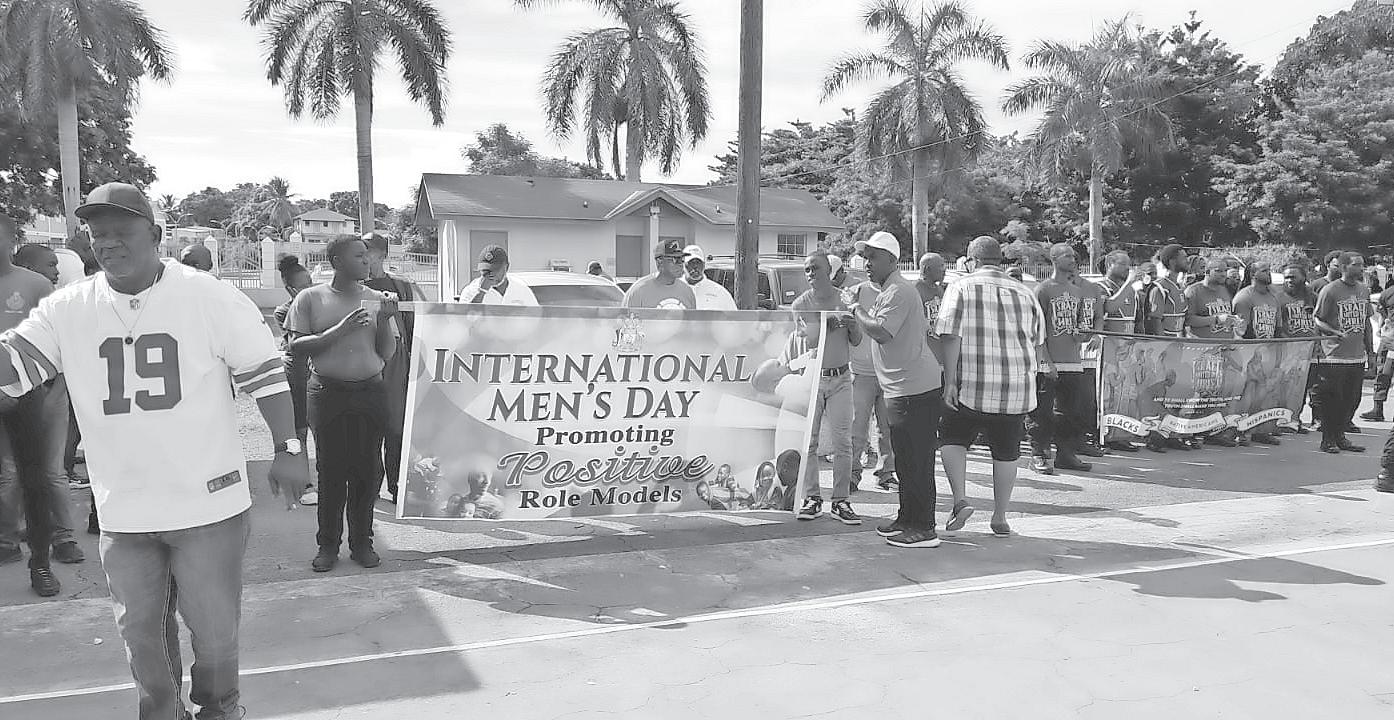
Minister Philip Davis, Minister of Social Services Myles Laroda, Minister of National Security Wayne Munroe, Leader of the Official Opposition Michael Pintard, and Bahamas Christian Council president Bishop Delton Fernander.
This year, men’s health and well-being remain at the forefront of IMD Bahamas’ mission, aligning
By VANESSA C SMITH
THE Bahamas Girl Guides Association Exuma District attended the Worship Service at Ebenezer Union Baptist Church in Farmer’s Hill to begin their “Guide Week” under the theme, “Our Story”.
District Commissioner Shequita Clarke brought remarks on behalf of the Girl Guides as they celebrate 110 years and thanked Pastor Stephen Smith and the Ebenezer Family for hosting them.
Clarke said each of us have a story in this life as men, women, boys and
with the overarching goals of International Men’s Day, observed globally on November 19.
“The IMD is a group of men that focuses on promoting positive male role models and celebrating positive contributions made by men in our society, while trying to improve gender relations and equality to eliminate discrimination against men.
girls. As the Guide’s song is entitled, “I Promise to love God and others”, that should be our daily mantra.
Dorcas Shuttleworth, a native of Exuma and distinguished Guide Leader, will be recognised for her dedicated sevice during the week.
Pastor Smith and The Ebenezer Family presented a monetary gift to Commissioner Clarke and her association. In attendance were Assistant District Commissioner Jabina Curry, leaders Donna Vanriel, Geritel Moxey, Ms Monroe along with parents.
It is also our hope and goal to ensure safer and better communities and encourage young men to become leaders of the society. This year our focus is on men’s health and wellbeing,” said Apostle Higgins. Addressing these issues head-on is crucial for ensuring healthier and stronger communities. The organization’s goal is to equip men with knowledge and
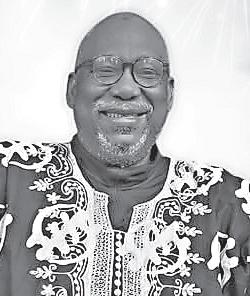
support systems to navigate various challenges.
The International Men’s Day (IMD) has been actively engaging men and boys through initiatives like the Men and Boys March and Rally, held last October at Christie Park. Themed
“Men Health Champions: Mental Health Matters,” the event aimed to highlight men’s health issues, encourage mentorship, and unify male-focused organisations.
“Mental health is an area this nation has been running away from, but
we must deal with it. We are committed to bringing awareness to the many issues that men face, including parental alienation, abuse, homelessness, suicide, and violence,” Apostle Higgins emphasised. Apostle Higgins believes that exposing boys to positive male role models is key to shaping their future.
“In most cases, young people become a product of their environment. Showcasing positive role models will encourage them to work towards becoming role models themselves some day,” he said.
To further this mission, the organisation plans to host a series of workshops and seminars, organised community walkabouts, events, and recognize outstanding men. With the installation service this Sunday, IMD Bahamas continues to solidify its place as a driving force for male empowerment, health advocacy, and community building in The Bahamas.

The association is made up of the Sunflowers, Brownies, Guides and Rangers from Stuart Manor Primary, Rokers Point Primary, Forest Primary, Moss Town Primary, St Andrew’s Anglican School and LN Coakley High School.
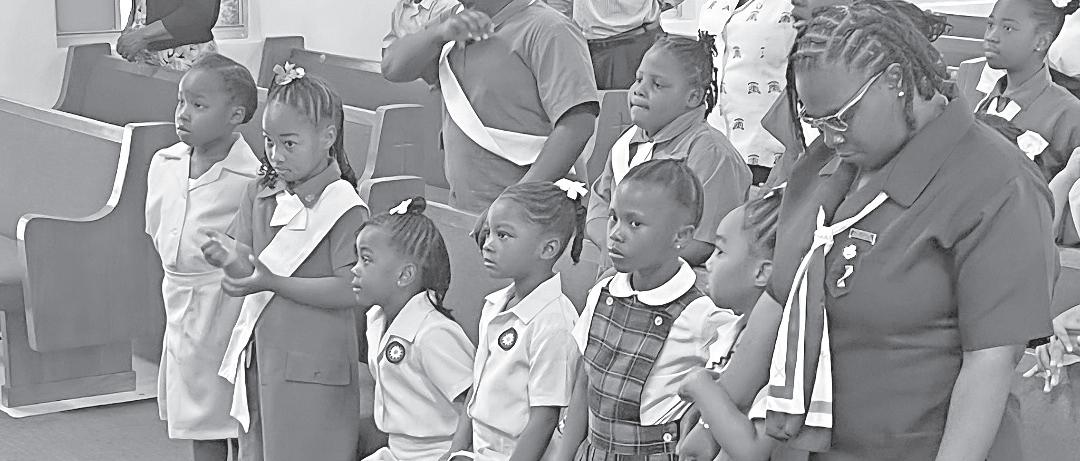



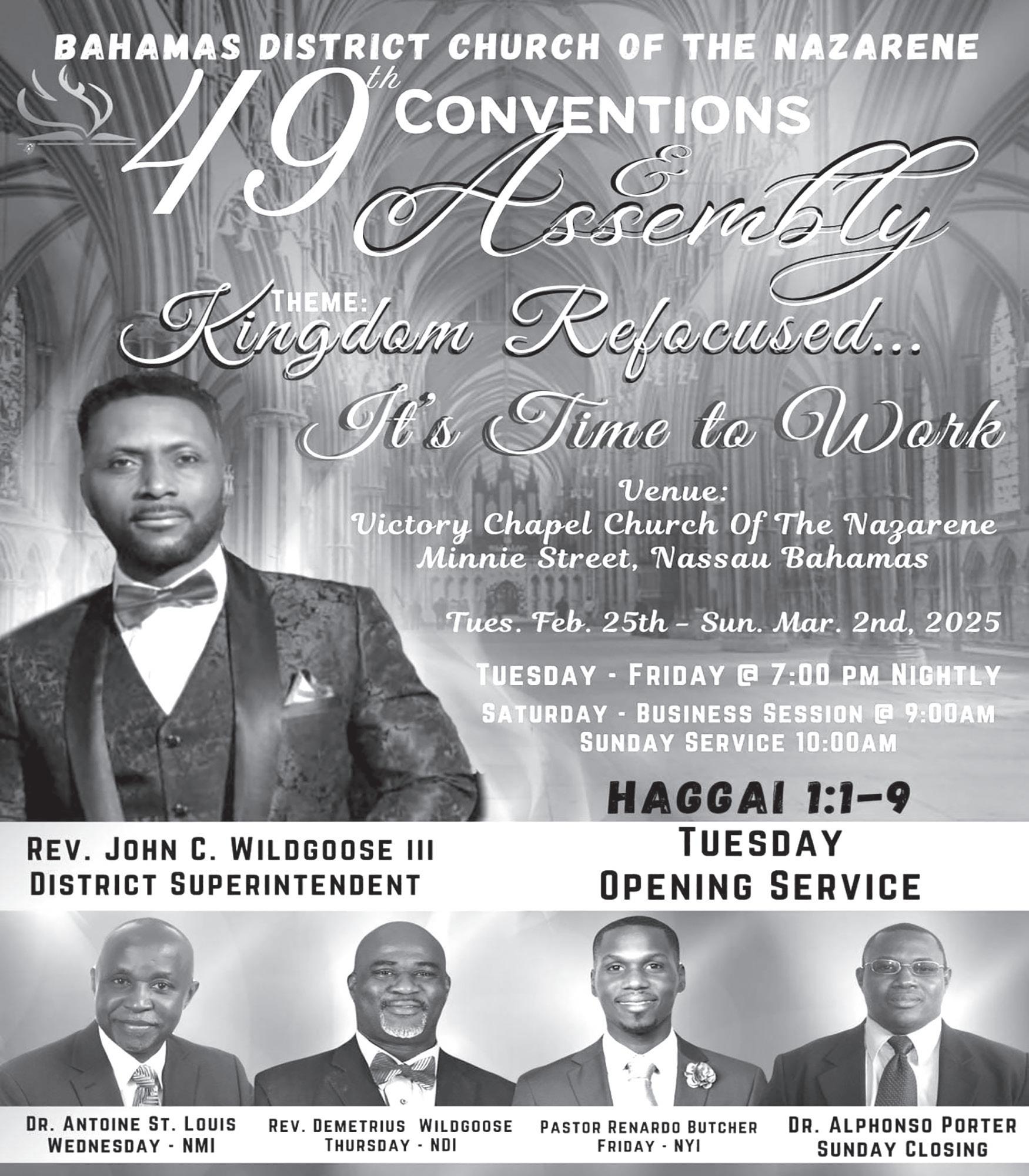
By TIFFANY GRANT
MEMBERS of The Anglican Church Women (ACW) of Holy Spirit Anglican Church were encouraged by Father John Pinder that, while trusting in the power of God’s Holy Spirit, that they be steadfast, immovable, always abounding in the work of the Lord.
“Have you considered all that you have been through? Through all these years, the dangers, toils and snares? Have you considered the faithfulness demonstrated by members of your organisation and by extension the church in all these circumstances.
“Have you seen or are you prepared to see just how God wants to use all that you’ve been through as preparation for what is to come, as He is writing the newest chapter of this ACW branch,” said Father Pinder.
Father Pinder, assistant curate at Christ Church Cathedral, was the guest preacher at Holy Spirit Anglican Church Women Fifty-first anniversary service held on February 2. Their theme for 2025 is “Be steadfast, immovable, always abounding in the work of the Lord,” which is taken from 1 Corinthians 15:58
Father Pinder in his sermon told the biblical story of Joshua and how he was in line to take up the leadership position after Moses’ death. He said that God had taken Joshua through a period of preparation and now it was his time to lead.
“Sisters and brothers, never discount some of the things you went through in life; do not over look experiences and situations where it felt like you were alone. Do not ignore those moments where it felt like God had abandoned you. Do not dismiss any chapter, any line, any sentence any word from the story

of your life, because you never know how or when or where God will use the things you have been through for His honour and glory.”
As a part of the service, the officers of Holy Spirit ACW were installed by the rector of the church, Father Neil Nairn. Those installed were: Chavasse Turnquest, president; Deborah McKinney, immediate past president; Nikia Lotmore, vice president; Christelle Sturrup, secretary; Florestine Sawyer, assistant secretary; Melony Hanna, treasurer; Cheryl Aranha, assistant treasurer. Committee chairpersons and assistants were also installed.
Newly installed president Chavasse Turnquest said that the ladies of Holy Spirit ACW are eager to continue in the work of the Lord.
“As this year progresses, we will do service-oriented work in the community, especially in the area of Chippingham, where our church is located. We will strengthen our members’ faith through inspirational talks and studies. We will also add on new initiatives in fulfillment of our theme: Be steadfast, immovable, always abounding in the work of the Lord.

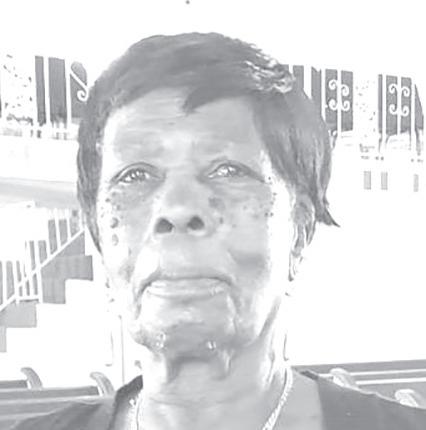
a resident of North Andros, Bahamas will be held on Saturday, February 22nd, 2025, 11:00am at Queen of Peace Parish, Faith Avenue North off Carmichael Road. Officiating will be Father Wid Andy Beniste. SMM.
Left to celebrate her life and legacy are her children: JeanClaude Blanc, Anouse Blanc(deceased), Frynau Blanc, Vita Blanc, Valcin, Onege Blanc(deceased), Brunette Blanc Previlus and Minouse Blanc; step children: Miriele Blanc and Rodrigue Blanc; grandchildren: Wilsy Blanc, Bergenson Jean Baptist, Liline Previlus Sherline Asselhomme, Juvens Mosmodestin, Steve Blanc, Josita, Valcin, Dayana Valcin, Alan Previlus, Tracy Previlus, Farrahkan Gaitor, Chanderline Previlus, Malaysia Gaitor, Dorothy Valcin; great grandchildren: Stravinsky Blanc, Maliyah Orivil, Steffie Blanc, Shemar Blanc; sister: Almatude Sillien Dacius; brother: Charlie Sillien (deceased), Alterie Sillien; nephew and nieces: Rosnie Darcius, Marlene Sillien, Minaud Darcius, Canje Darcius, Henry Claude Darcius, Sylvain Sillen, Wilfred Sillien, Lynda Sillien, Roselore Sillien; Mrs. Silien has a host of additional relatives and friends, too many to mention. Please forgive us during our time of bereavement if your names were not mentioned above.
The body will repose at The Chapel of The Saints, Sweeting’s Colonial Mortuary on Friday from 10:00am to 5:00pm and on Saturday from 10:00am until service time at the church.
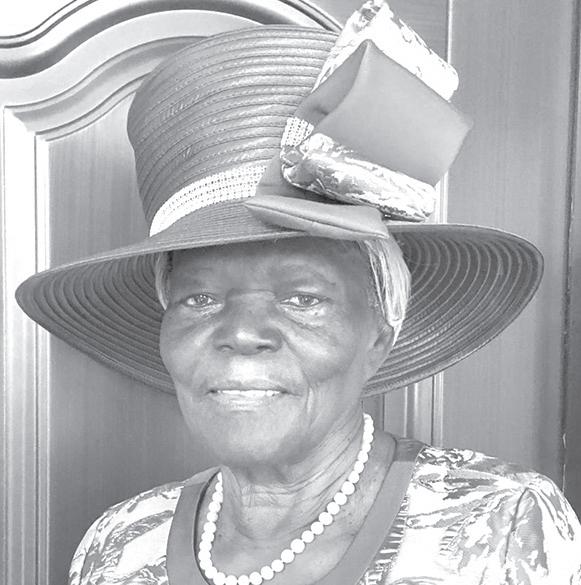
a resident of Cedar Way, Bahamas died at her residence on Friday, February14th, 2025.
She is survived by her daughters: Gracie Robinson and Maryann Rahming; grandchildren, great grandchildren, great-great grandchildren, numerous nieces and nephews and a host of other relatives and friends.
Funeral arrangements are being finalize and will be announced at a later date.
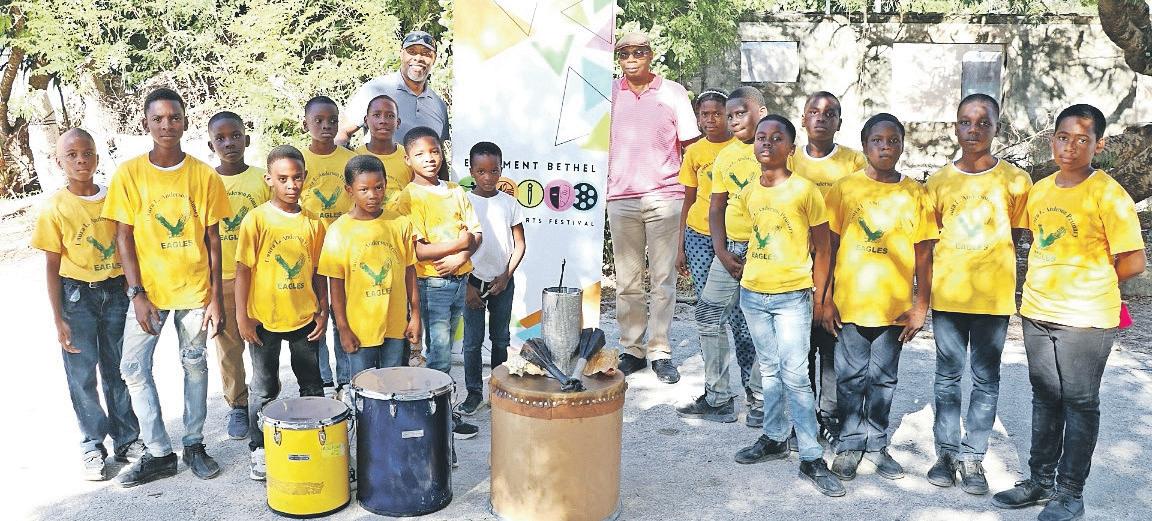

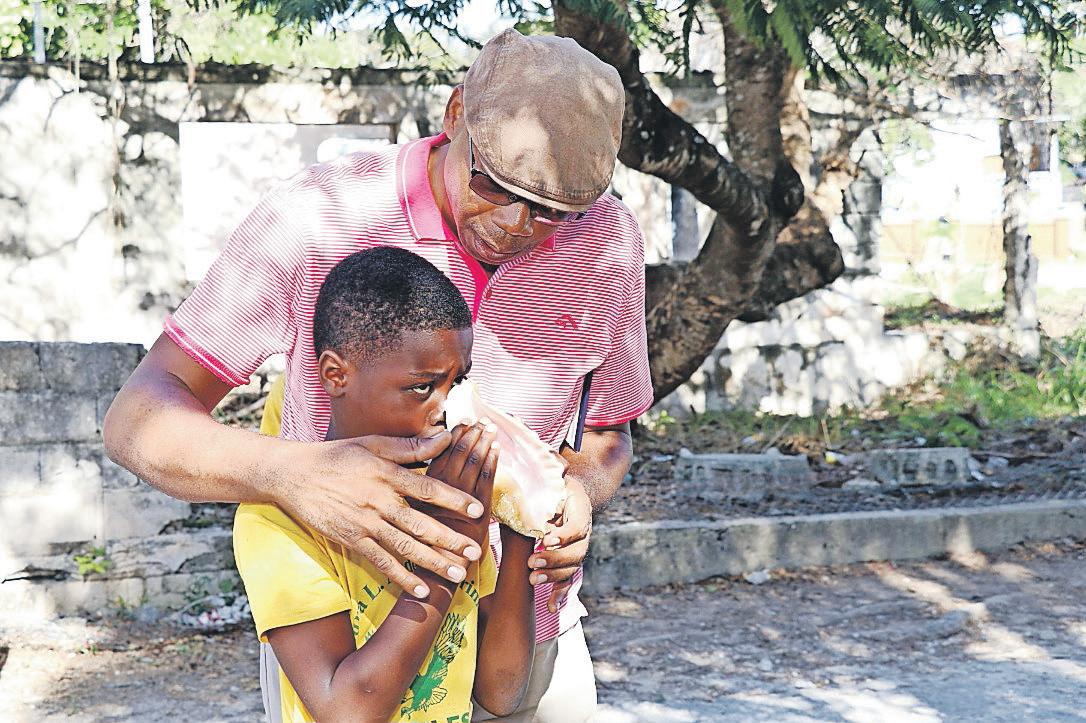


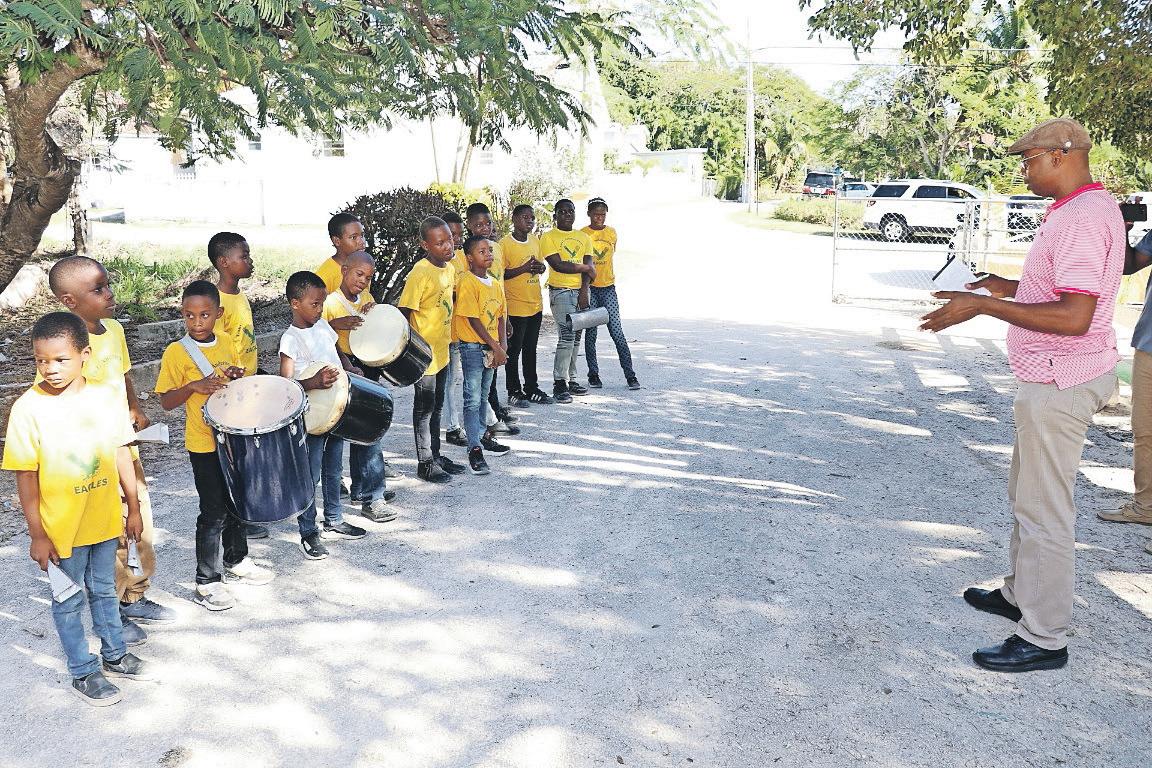
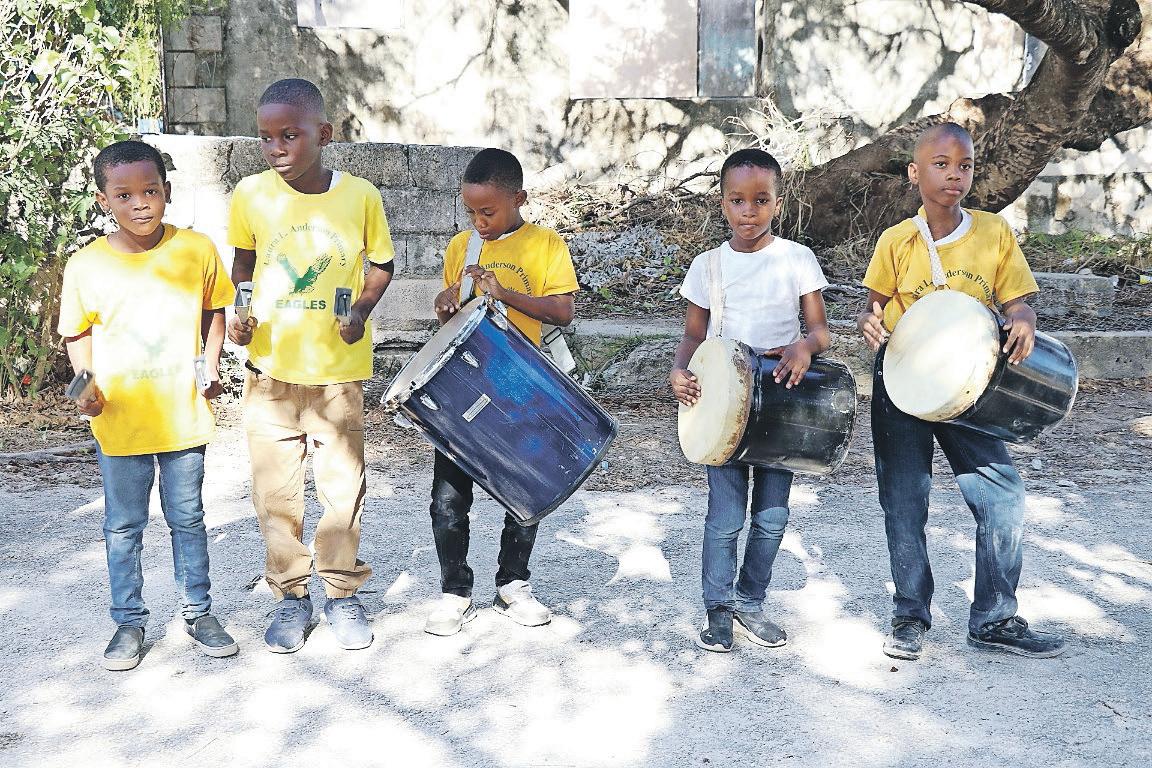



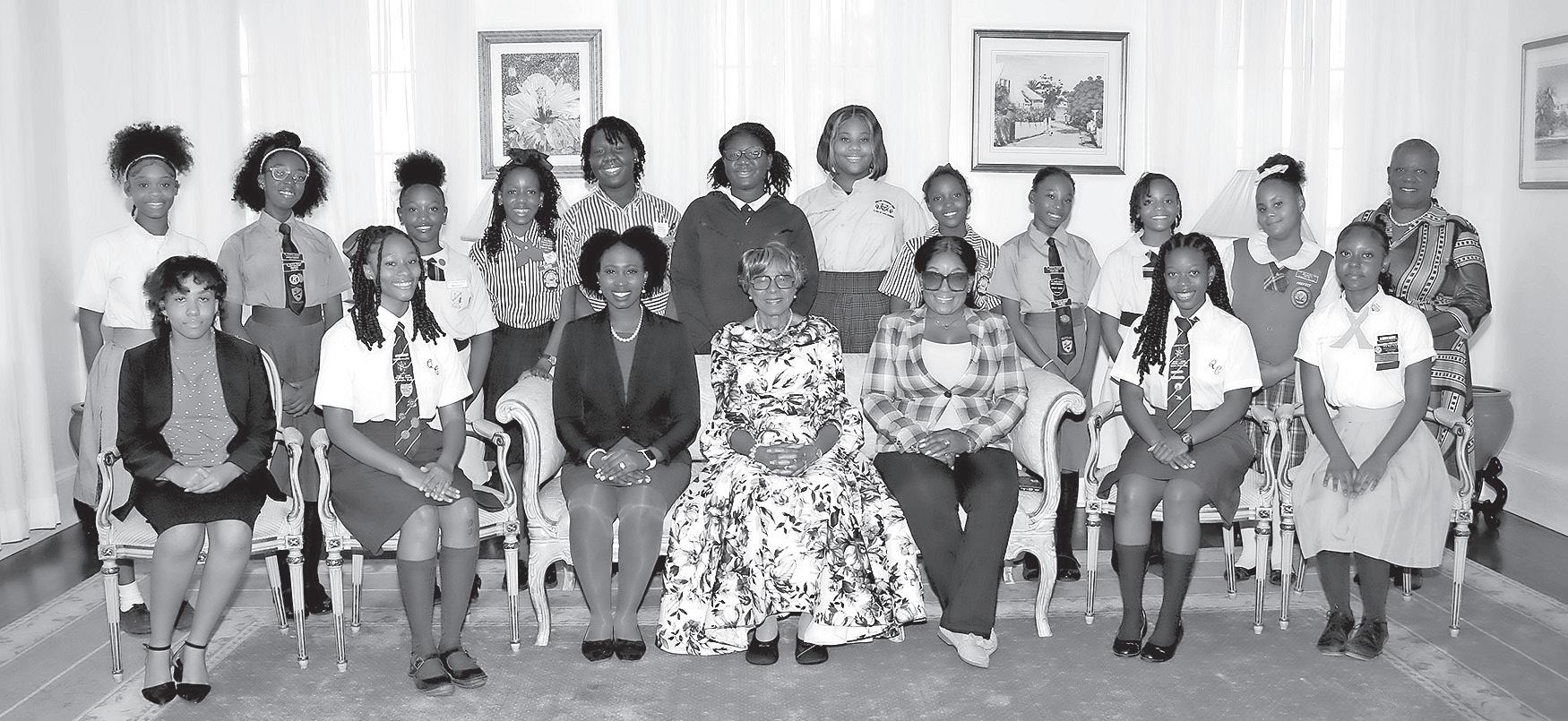
The Hospitals & Health Care Facili>es Act 2001 Register
12. (1) The Board shall prepare and maintain a Register containing names, addresses and such other parAculars as may be prescribed of all hospitals or health care faciliAes which are licensed under the Act.
(2) The Board shall cause the Register to be published in the Gaze%e as soon as pracAcable aHer the expiraAon of thirty days aHer the commencement of this Act and thereaHer in each year as soon as pracAcable aHer the thirty-first day of January, and the thirty first day of July, respecAvely.
(3) In each year aHer the Register is published under subsecAon (2), the Board shall cause to be published in the Gaze%e as aforesaid a corrected ediAon of the Register or a list with addiAons made to the Register since it was last published. (4) The Board shall keep the Register open at all reasonable Ames for the inspecAon by members of the public.
The following is a list of Hospitals and Health Care Facili>es registered under Sec>on 12 and licensed under Sec>ons 6 and 7 of the Hospitals & Health Care Facili>es Licensing Board Act, 2001 for the period beginning January 1st, 2025


